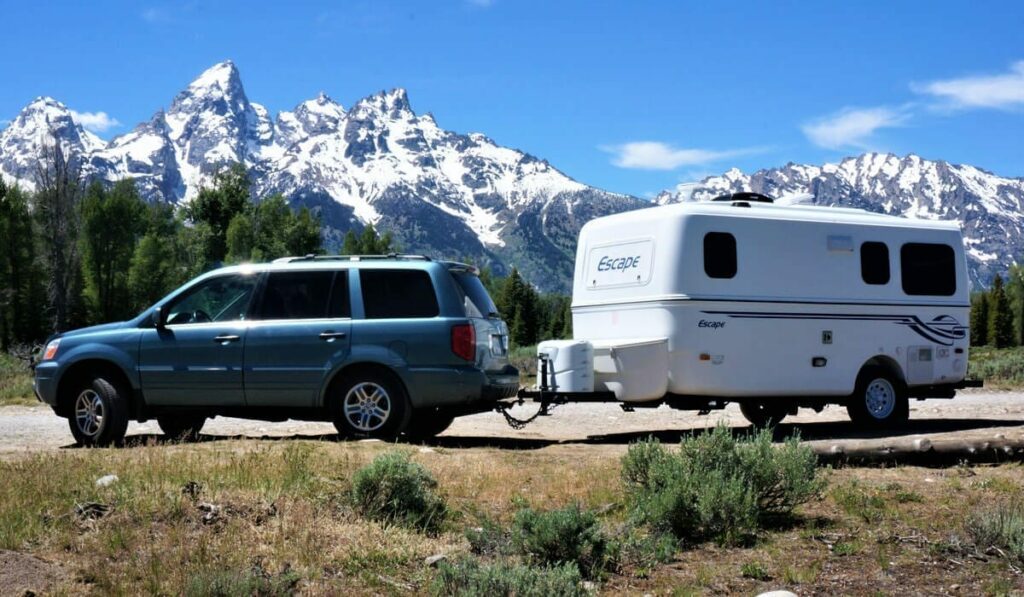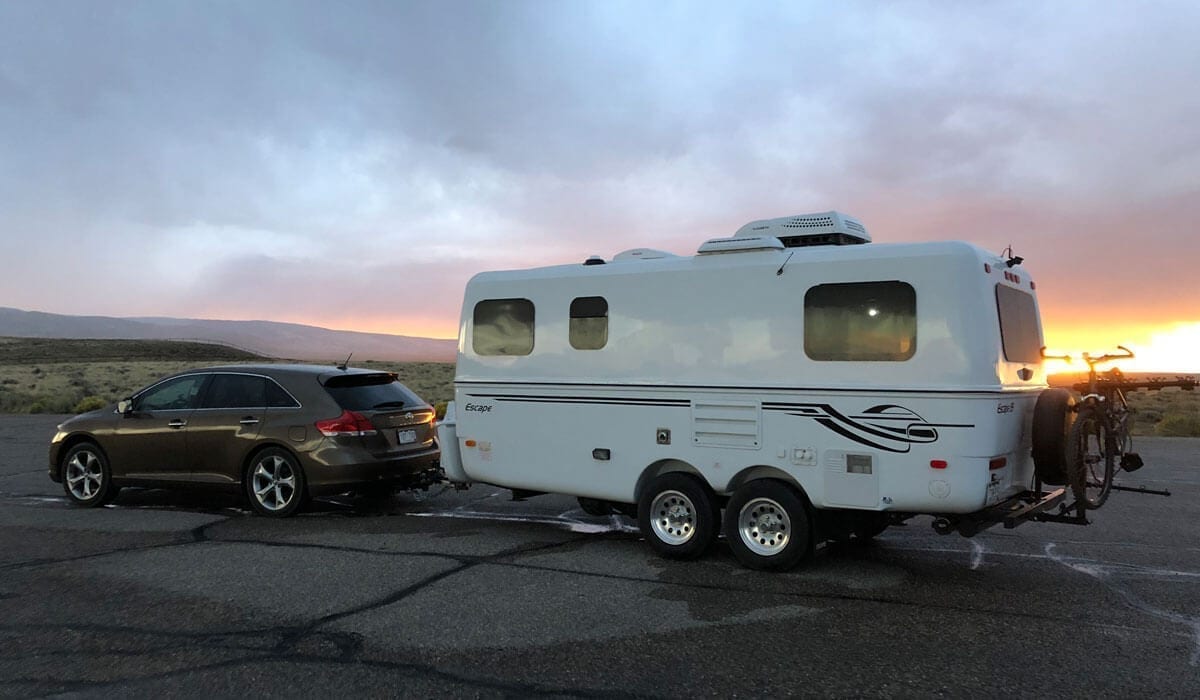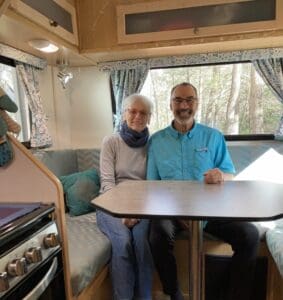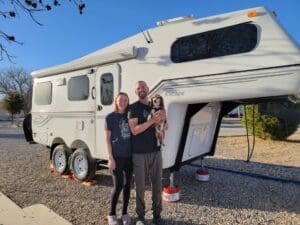11 Tips to Keep You Safe on the Road
When you travel, especially while towing a travel trailer, you don’t want any unwanted surprises that replace rest and relaxation with stress and anxiety. The best way to prevent those unwanted surprises is to follow a few simple safety tips. And with a little know-how, preparation, and precaution, you can avoid most mishaps that can occur on the road.

1. Make sure that your tow vehicle is ready for the trip.
Take it in for an oil change if needed and have your mechanic check the belts and hoses as well. Few things can disrupt the fun of RV life more than a blown hose or a broken belt.
2. Walk around your RV and vehicle before setting out and inspect your vehicle.
Make sure that the lights are all working. Check your spare tire as well, both for the tow vehicle and the trailer. Check the hitch and make sure that it is in good working order and is well lubricated.
3. Inside your RV, perform a safety check.
The batteries in your smoke detectors should be working and make sure that the fire extinguisher is ready for use. Last, check to make sure that the jacks are raised and the awnings retracted and secure before hitting the road.
4. Keep your emergency numbers where they are easy to access.
You won’t want to waste time looking for the right if you have a breakdown, and you might be stuck in a spot where the signal is too weak for your cell phone.

5. Don’t tow more than your vehicle can handle and make sure that you have distributed weight to avoid fishtailing.
Towing a trailer that is too heavy will cause extra wear and tear on your tow vehicle, even to the point where it can cause structural damage or an accident. And when you load the trailer, make sure that you have loaded it so that you have enough weight on the tongue to avoid fishtailing. Additionally, be sure the tongue weight isn’t so much that it compresses the rear springs to a dangerous level.
6. Make sure mirrors are adjusted so you can see your travel trailer.
Turning, passing, parking all require clear vision of your vehicle and trailer, so make sure that you can see the rear of your trailer before you pull out.
7. Always lock your vehicle and never leave valuables in plain sight when stopping.
Phones, wallets, purses, computers, and tablets left in plain sight are invitations for smash and grab thieves. Few things can get in your way of relaxing travel than to have your valuables stolen.
8. Talk to your kids or grandkids about safety and pitstop etiquette.
Each child should always carry a card with contact information. Be sure it includes:
- Name
- Address
- Parents’ phone numbers
This makes it easier for them or a helpful adult to contact you if your little one gets separated. You should also have a chat about who they should ask for help. For example, if your child gets separated at a rest stop, they should go to the attendant rather than up to a vehicle.
Most importantly, remind the kids to stay with the family and not wander off on their own. When you make a pit stop, keep the kids close to you, ask them not to talk to strangers, and wash their hands after they use the facilities.
It pays to be extra careful.
9. Plan for breaks and rest stops.
Everyone that has driven long distances knows that tired eyes and drowsiness will be a problem. Even driving during the day, your brain will naturally want to stray from the task-at-hand after a bit. You can counteract losing focus and fatigue by limiting the time that you drive between stops.
Try to take at least a short break every 2 to 3 hours. This will help you stay more alert and attentive. Changing drivers is another good way to avoid fatigue. And don’t forget that coffee or caffeine drinks can keep your eyes on the road. Make sure that you take these breaks into account as you plan your trip.
10. Pay attention to your surroundings.
If it looks dangerous, then it probably is and you are best off getting out of that area as soon as possible. Stay on major roads and stop at popular and well-lit places. Furthermore, watch for erratic drivers and emergency vehicles on the shoulder.
11. When you stop at a campground for the evening, make sure your kids know what is expected of them.
Layout where can they go and what can they do. Give them the freedom that is appropriate for the age and child. Let them know how they can keep from infringing on the rights and enjoyment of other campers as well. They will be your neighbors as long as you stay, and happy neighbors are helpful neighbors.
A safe adventure is the best adventure
Staying safe on the road maximizes the fun of your escape and could save you money, stress, and prevent physical harm. You’ve never heard anyone say, “Don’t bother being too safe” for a reason.
We believe ‘better safe than sorry’ makes for the best trip and best travel trailer. This is why we’re proud to produce light-weight fiberglass trailers, which can make towing easier and safer. With Escape Trailers, you get a reliable travel trailer that’s easy to tow along with our customer support that will answer your questions while you’re on the road. Read why Escape Trailer owners trust our travel trailers.
To receive our newsletter by e-mail, please click the “Subscribe” button in the footer below.












